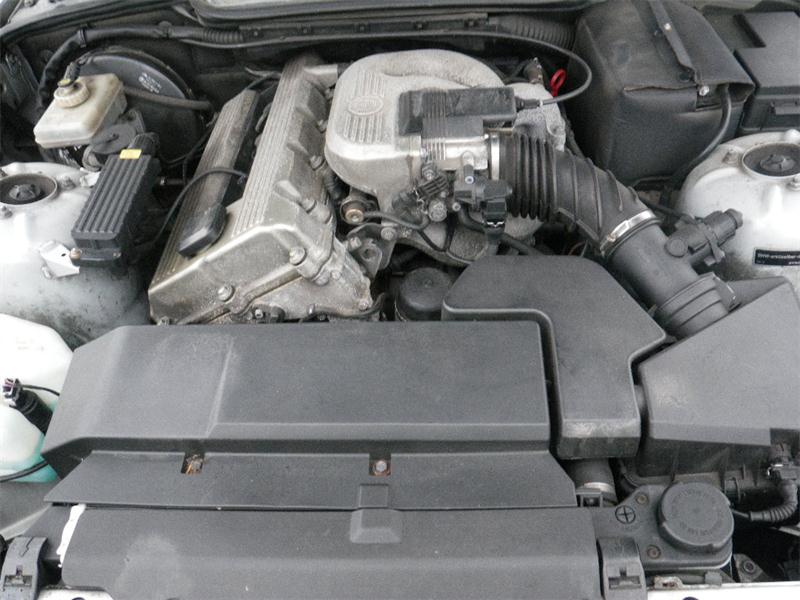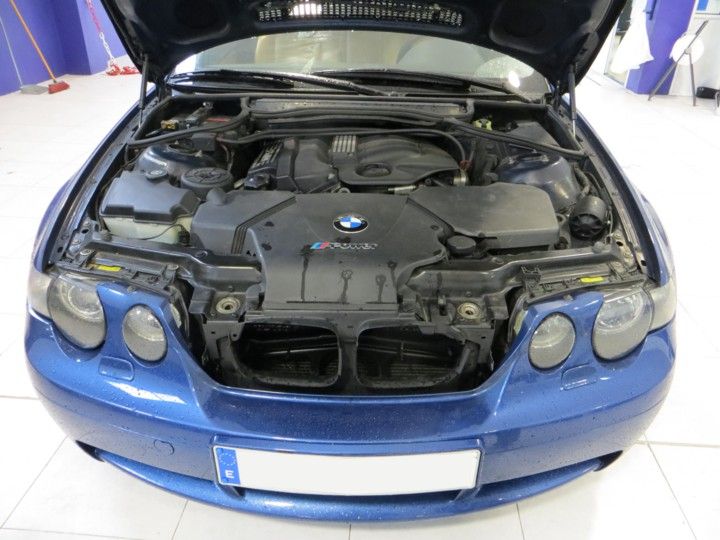Just how to Keep Your BMW 318ti Running Efficiently for many years
Just how to Keep Your BMW 318ti Running Efficiently for many years
Blog Article
Key Features to Try To Find When Buying an Engine for Automotive Applications
When thinking about the purchase of an engine for auto applications, a number of crucial features warrant mindful evaluation to make certain optimal performance and functionality. From power and performance capacities to fuel adherence, sturdiness, and performance to emissions requirements, each facet plays a crucial function in identifying the engine's viability for particular auto demands.
Power and Efficiency
When picking an auto engine, buyers prioritize power and efficiency to ensure optimal driving experience and efficiency. The power outcome of an engine, often measured in horse power (HP) or kilowatts (kW), dictates the acceleration, full throttle, and total abilities of a lorry. Higher power scores normally lead to quicker acceleration and better efficiency, specifically during overtaking or bring hefty loads. Efficiency, on the other hand, encompasses a more comprehensive range of attributes, including gas efficiency, emissions, dependability, and overall driving characteristics. A well-performing engine not just delivers power effectively but also operates efficiently throughout different speed arrays and driving conditions.
Purchasers frequently take into consideration the engine's torque outcome along with its power ranking. Torque, measured in pound-feet (lb-ft) or Newton-meters (Nm), reflects the engine's rotational force, influencing the lorry's ability to tow, climb slopes, and speed up from dead stop. An equilibrium between power and torque is crucial for achieving a receptive and versatile driving experience. Additionally, variables such as engine variation, hybrid, and turbocharging innovations play significant functions in improving both power and efficiency degrees. Ultimately, picking an engine that offers a powerful combination of power and performance ensures a reliable and enjoyable driving experience. bmw 318ti.
Fuel Performance
Optimizing gas efficiency is a critical factor to consider for consumers when evaluating automobile engine alternatives. Modern engines with features like straight fuel injection, turbocharging, and variable valve timing can substantially improve gas efficiency by boosting combustion processes and reducing power loss.

Durability and Integrity
Achieving durable performance and reputable procedure is essential for consumers reviewing the resilience and reliability of automobile engines. When taking into consideration an engine for automobile applications, durability refers to the engine's capacity to withstand wear, stress, and extreme operating conditions over an extensive period. Integrity, on the other hand, indicates that the engine can constantly execute its desired function without unforeseen break downs or failures.
Customers ought to try to find engines built with premium materials and accurate engineering to make sure longevity. Elements such as crankshafts, bearings, and pistons must be long lasting to take care of the engine's power result without early wear. In addition, engines outfitted with advanced cooling systems, effective lubrication, and durable filtration devices often tend to exhibit greater degrees of dependability.
Normal maintenance and adherence to manufacturer referrals are additionally vital consider maintaining an engine's durability and dependability. By complying with upkeep routines, using recommended liquids, and resolving any problems without delay, customers can maximize the life expectancy and performance of their automobile engines. Inevitably, prioritizing sturdiness and dependability in engine selection can lead to an extra enjoyable ownership experience with less unforeseen interruptions.
Emissions Compliance
Making sure compliance with discharges laws is an essential element of reviewing vehicle engines for environmentally aware consumers. With enhancing problems concerning air high quality and ecological effect, strict exhausts standards have actually been put in area internationally to decrease dangerous pollutants launched right into the environment. When purchasing an engine for auto applications, it is necessary to consider its emissions conformity to decrease the carbon footprint and abide by legal demands.
Modern engines are outfitted with innovative exhaust control innovations such as catalytic converters, exhaust gas recirculation (EGR) systems, and selective catalytic reduction (SCR) to reduce dangerous exhaust gases like nitrogen oxides (NOx), carbon monoxide gas (CO), and hydrocarbons (HC) These systems play a vital function in ensuring that the engine fulfills the specified exhausts requirements and operates within allowable limits.

Cost-effectiveness
When taking into consideration vehicle engine purchases, assessing cost-effectiveness is extremely important for consumers seeking both performance and value. Cost-effectiveness in engine purchase includes greater than simply the first purchase cost. It incorporates the total expenses connected to upkeep, gas usage, and prospective repair work over the engine's life-span. Selecting an engine that uses a balance in between long-lasting cost savings and upfront costs can result in substantial benefits for the customer.
One secret aspect of cost-effectiveness is fuel efficiency. Engines that are created to optimize fuel economic climate can cause significant financial savings over time, particularly for individuals that drive frequently or over cross countries. Additionally, considering the availability and price of spare parts and maintenance can add to the overall cost-effectiveness of an engine. Making sure that repair and maintenance are obtainable and reasonable can stop unforeseen financial problems down the line.

Verdict
Finally, when buying an engine for vehicle applications, it is essential visit to consider essential features such as power and performance, gas reliability, longevity and performance, discharges conformity, and cost-effectiveness. These factors are essential in ensuring that the engine meets the requirements of the car and runs properly in numerous driving problems - bmw 318ti. Making an educated choice based on these criteria will eventually result in a reliable and successful vehicle engine purchase
From power and performance capacities to fuel adherence, effectiveness, and toughness to emissions standards, each aspect plays an important function in identifying the engine's viability for details automotive needs. Engines designed to run on alternative fuels such as electrical power, crossbreed systems, or biofuels can use better fuel economic climate and lower emissions contrasted to standard fuel or diesel engines. Consumers need to carefully consider the fuel efficiency scores and modern technologies incorporated right into automobile engines to make educated purchasing choices that straighten with their concerns for cost financial site link savings and sustainability.
When thinking about an engine for auto applications, longevity refers to the engine's capability to hold up against wear, stress, and extreme operating problems over an extensive period.In verdict, when buying an engine for auto applications, it is important to think about vital features such as power and efficiency, gas performance, durability and dependability, emissions conformity, and cost-effectiveness.
Report this page